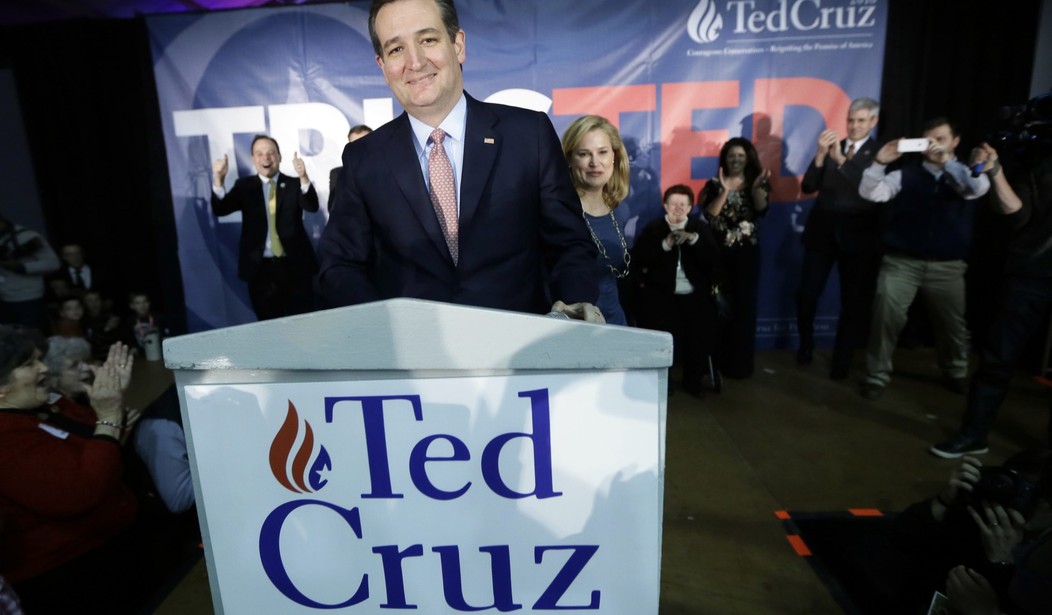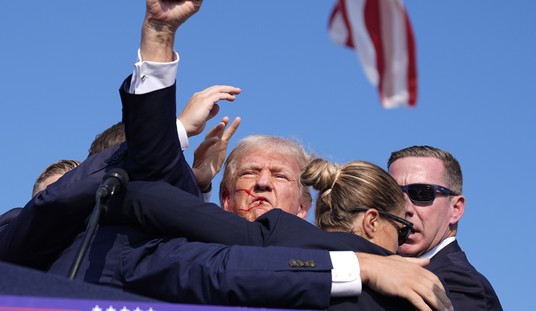This morning in the New York Times: “Senator Ted Cruz of Texas, powered by a surge of support from evangelical Christians, dealt a humbling loss to Donald J. Trump in the Iowa caucuses on Monday, throwing into question the depth of support for Mr. Trump’s unconventional candidacy.”
Mark the bit about the caucus “throwing into question the depth of support for Mr. Trump’s unconventional candidacy.” So, our Former Paper of Record has discovered that Trump fans — the loud, the petulant, the intolerant — are more noisy than effective. In other words, there is a difference between jumping up and down screaming and hurling abuse at your opponents and genuine support. Where have we heard that before? Oh, right:
The question for Trump is whether his many fans are convertible into reliable supporters. The polls measure the former. I am not at all sure that they are a reliable guide to the latter. And that is one reason that I suspect that Ted Cruz’s recent bump in the polls is more significant than Donald Trump is quite willing to admit.
Read, as they say, the whole thing. The bottom line: “A lot of people will slap their thighs over Donald Trump. Vastly fewer, I suspect, will pull the lever for him in the privacy of the voting booth.”
Why? For one thing, the boisterous, mediterranean-style enthusiasm that Trump generates in certain segments of the population distracts one from another reality of the Trump phenomenon: namely, that his negatives are extraordinarily high — or, as a Gallup poll just put it, the highest ever recorded. Wheeling into the Iowa caucus, most polls had Trump comfortably ahead. But then people actually had to vote and you had to wonder exactly what it was the polls were measuring.
I’ve had occasion in this space to quote Spy magazine’s old epithet for Donald Trump from the 1980s: “a short-fingered vulgarian.” Trump vulgarity, like Falstaff’s dishonesty, is “gross as a mountain, open, palpable.” I remember a story, probably also from the late 1980s or early 1990s, that described some architects trying to instruct Donald Trump about the what was and wasn’t good taste in the matter of architecture ornamentation. They had endeavored to save him from something like six-foot gilt letter “T”s in hotel lobbies. As I recall, their efforts were to no avail, much to the deliciously appalled appreciation of readers, who delighted in Trump’s horrifying exhibitionism. (The essence of camp: it’s good because it’s so bad.)
That said, I want to emphasize that I do not object to Donald Trump’s vulgarity. It may be the most appealing thing about him. His instinct for the ersatz — his embrace of the patina-glamor of the casino — is certainly the most genuine thing about him.
What is not at all genuine about Donald Trump is his new-found identification as a standard-bearer of the conservative cause. In fact, as I and many others have pointed out ad nauseam, Trump is anything but conservative. Consider, if you need a reminder, the litany compiled by Breitbart, which goes through Trump’s positions on immigration, foreign policy, abortion, same-sex marriage, religious freedom, entitlements, campaign finance reform, government involvement in the economy, taxes, education, healthcare, trade, and guns. It’s an illuminating recital.
But here’s where the magical thinking comes in. History shows that most of Donald Trump’s actual positions are indistinguishable from Hillary Clinton’s or Chuck Schumer’s. Yet most, or at least many, of his fans are disgruntled Republicans. I understand and indeed share their disgruntlement. What I have difficulty in understanding is why they support a man who, were he elected president, would come to Washington and indulge in even more flagrant cronyism than the politicians they rightly despise. Trump, after all, is a man who has repeatedly bragged about bribing politicians so that he can later call in favors. Partisans of big government and fans of the regulatory state (they exist: I actually met one last week) should support Trump: he’s their guy, with an icing of populist bombast to make the medicine go down. But if you are conservative — if you like limited government, low taxes, traditional non-“New York values” morality, etc. — then supporting Trump is crazy.
But what about Iowa? What difference did it make? Since Ted Cruz won, the spin will be: it makes no difference at all. Only 186,000 votes were cast in the Republican caucus. Ted Cruz walked away with 51,649 votes to Trump’s 45,416 and Rubio’s 43,132. Big deal. The New Hampshire primary is next week and Trump is slated — the polls say! — to crush everyone there as he is in South Carolina a couple weeks later.
Of course, had Cruz lost, Iowa would be presented as the most important political event in living memory. “Cruz is finished” — that would have been the headline.
Neither narrative is accurate. Iowa means something. Ted Cruz’s victory is a testament both to the cogency of his message and the effectiveness of his campaign’s ground game. Politically, it is a significant, though not a definitive victory. Psychologically, it is a huge boost. Over the last several months, Trump has gone from being an impossibility to being, in the minds of some pundits, an inevitability. Cruz’s victory negated that aura of inevitability.
Still, Iowa is only the first of 50 contests — 51, if you count the one that takes place next November. As I’ve said in this space before, I support Ted Cruz because I believe he offers the best hope of restoring an allegiance to government limited by adherence to the Constitution of the United States. Rule by executive diktat, on the one hand, and unaccountable regulatory meddlesomeness, on the other, would end. Quite apart from his specific policy proposals, Ted Cruz has made two central promises: 1) to tell the truth and 2) to do when elected what he said he would do on the hustings.
Iowa guarantees nothing. But it shows that for Ted Cruz there is a green light on the road ahead.









Join the conversation as a VIP Member